NHS Wales: India nurse deal 'won't close gap', says RCN
- Published
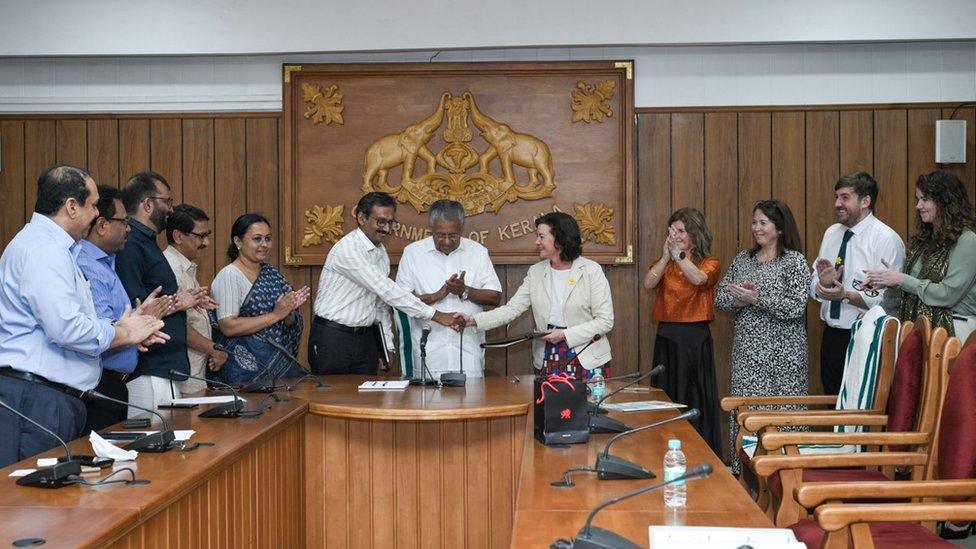
The health minister travelled to India to agree the deal
A deal to recruit 250 nurses and doctors from India will not be enough to fill staff shortages, a nursing union boss said.
Welsh health minister Eluned Morgan has signed an agreement with the Keralan government, aiming to close the vacancy gap and cut costs.
Last year's NHS figures showed there were nearly 4,300 vacancies - 2,300 in nursing, midwifery and health visiting.
But the Royal College of Nursing said nearly 3,000 nurses are now needed.
Helen Whyley, director of the Royal College of Nursing in Wales, told BBC Radio Wales Breakfast: "Whilst we absolutely welcome them to be here, we also know this is not the solution to the gap.
"We would say it's closer to nearly 3,000 vacancies for registered nurses. So, clearly, 250 are not going to close that gap.
"We have seen investment into undergraduate education programmes, and we welcome that, but even that doesn't come up to the level that health boards say they need."
She added retention of staff was also a huge issue in Wales.
"If we have trained x number, we absolutely need to keep them. What I hear from members all the time is the offer is just not good enough to keep them nursing in Wales," she said.
"I think that's a shame because Wales is a fantastic place to work. We've got a huge amount of nursing innovation that is happening, but we do need more investment into that retention issue to keep our staff here and to make it the absolute place of choice in the UK.
"When you qualify as a nurse, you should be saying 'I want to go and work in Wales'."
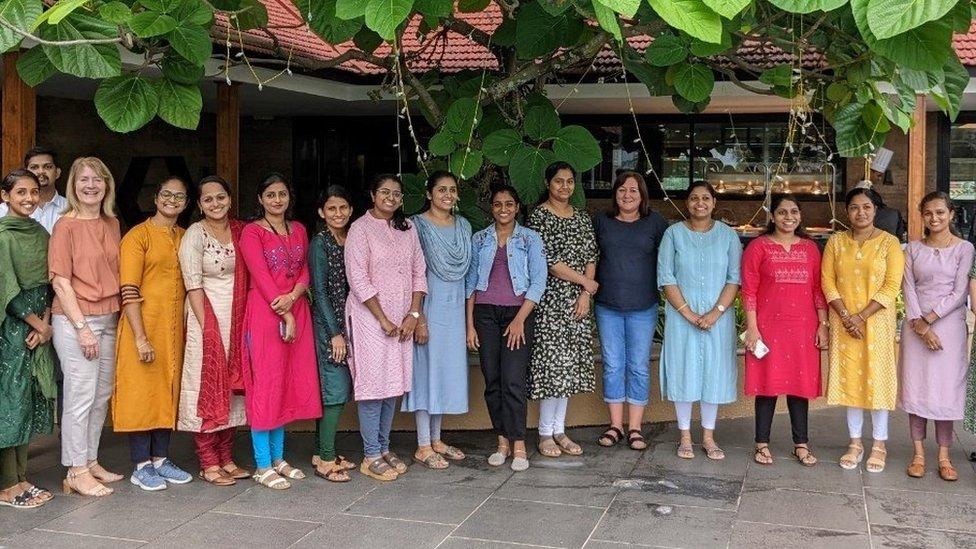
Nurses from Swansea Bay University Health Board recruited at an event in India
Health boards in Wales currently already recruit staff from abroad to fill staff shortages. Swansea health board recently announced a plan to recruit 900 nurses from Kerala.
Speaking to Radio Wales from Kerala, after signing the deal, Wales' health minister Eluned Morgan said the new agreement would cut the costs of finding workers through agencies.
"What's different here is it's a direct government relationship and we're cutting out the agencies that are usually the middle men between the recruitment of the nurses themselves and governments in the United Kingdom," she said.
"We're doing this on a once-for-Wales basis, so rather than having seven different health boards coming over here to recruit independently, we're doing it on behalf of all of the health boards in Wales.
"So in future, Swansea health board won't need to come out here independently, we'll have done that for them."
'We are losing staff'
But RCN boss Ms Whyley said more action needed to be taken by the Welsh government to fill the thousands of nursing vacancies.
"I absolutely think that they could do more... I think they could be cleverer with the money that's already in the system," she said.
"Pay is a huge issue. When you can work in a local supermarket for only a couple of pounds an hour less than you're getting paid to do a safety critical role such as nursing after having studied at degree level, then it is no wonder why we are losing staff."
She added that workers brought from India would also need a clear career trajectory, as better pay was available in countries such as the United States.
"We need to make sure that we're investing in them so they make a career and are promoted to become charge nurses and ward sisters and senior nurses and executive directors of nursing," she said.
"Our track record so far on our international nurses for that is not so good.
"Without that career progression, they will move on to pastures new."
- Published4 April 2023

- Published27 June 2023
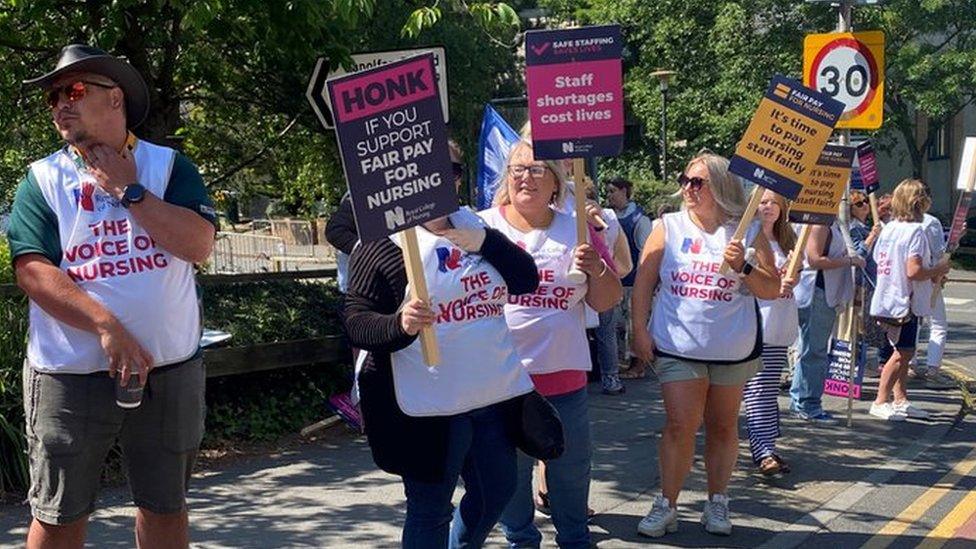
- Published2 April 2021
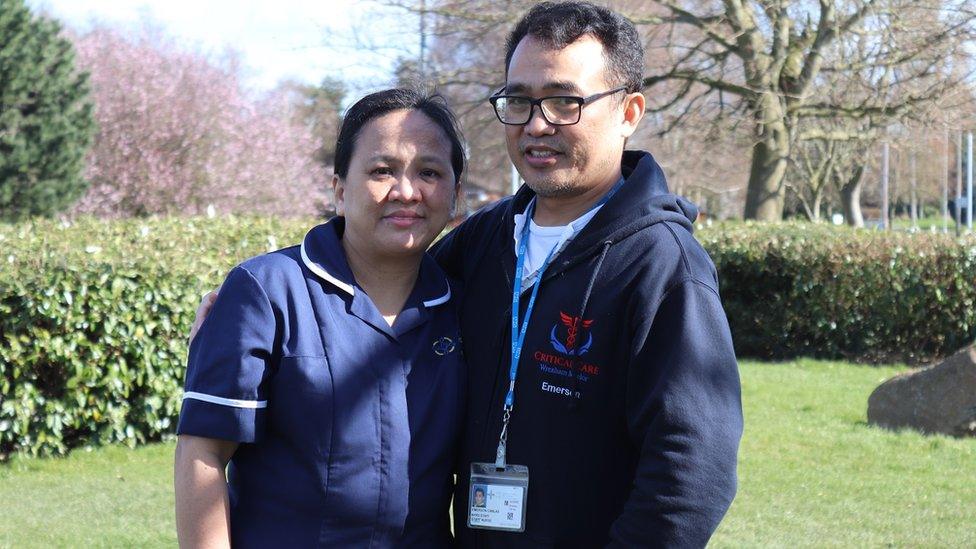
- Published1 February 2023
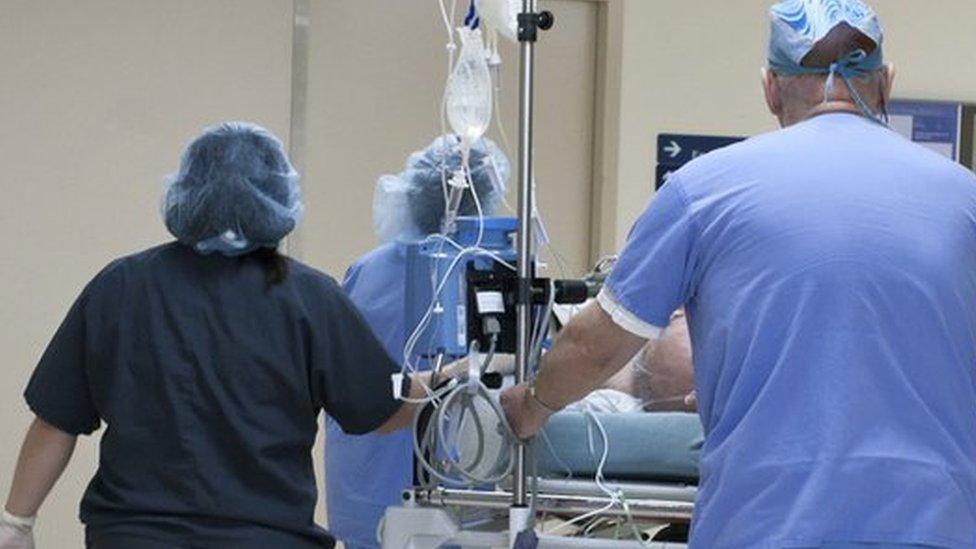
- Published10 May 2019

- Published6 December 2022
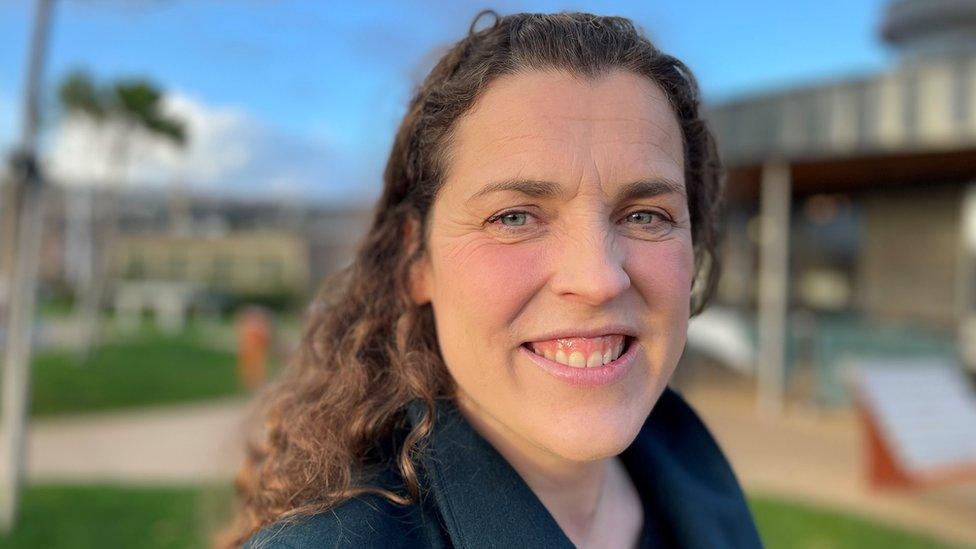
- Published4 July 2018
